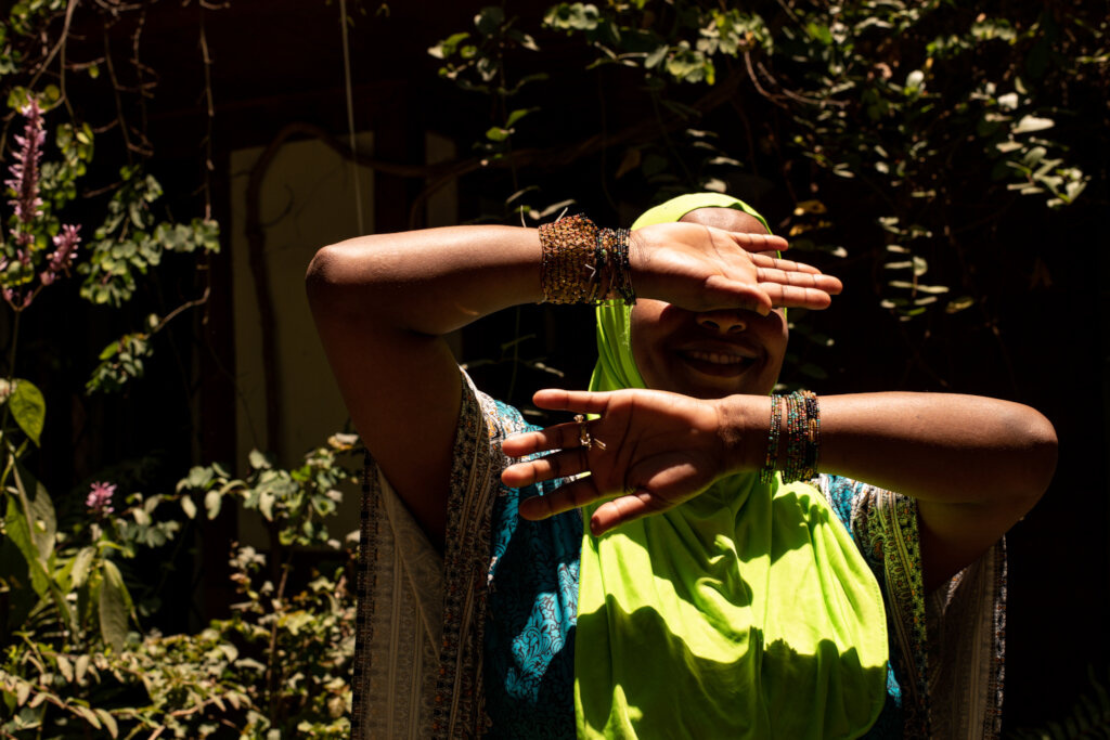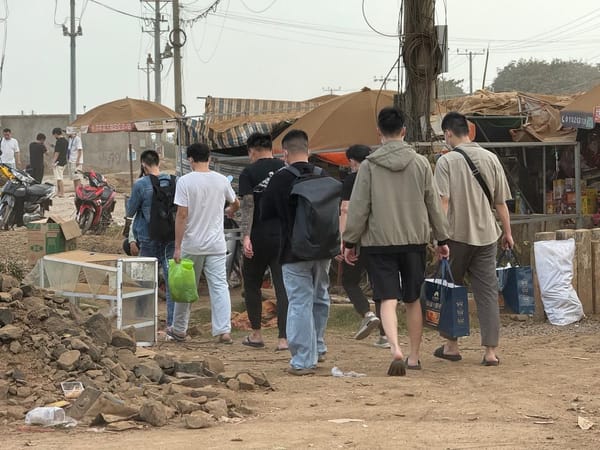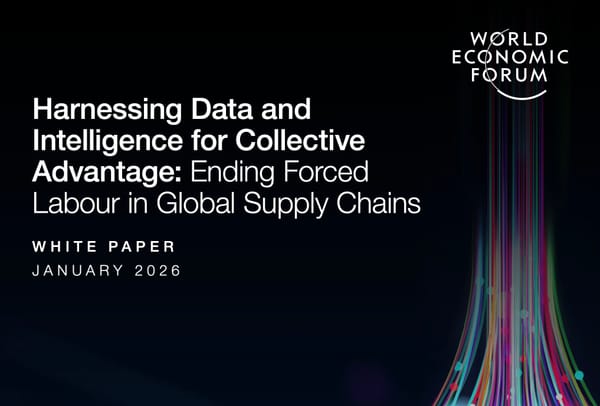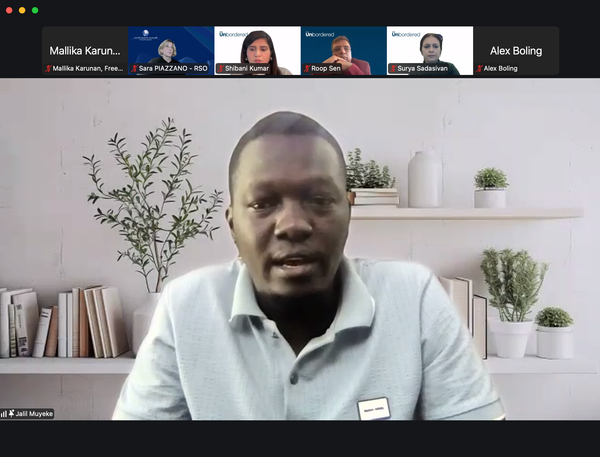New CSO data on survivor outcomes could help inform support efforts in East Africa
EHAAT findings highlight the role of legal assistance in supporting victim recovery, experts sound the alarm over staffing cuts at the U.S. TIP Office, and UK lawmakers recommend sweeping reforms to address forced labour in supply chains.

New data on outcomes and support gathered by civil society groups from the East and Horn of Africa Anti-Trafficking (EHAAT) Network is enabling stronger advocacy across the region. Published in a new section of our regional routes mapping report, the collected findings offer valuable insights into the recovery journeys of trafficked and vulnerable migrants, the most impactful interventions, and the response gaps that remain. The dataset, based on nearly 400 route-based submissions collected between January 2024 and April 2025, highlights the services received, the barriers faced, and the longer-term outcomes for affected individuals.
The report, which was developed with support from the Better Migration Management (BMM) Programme, coordinated by Freedom Collaborative, and funded by the European Union and Germany, documented outcomes in 274 cases – a substantial sample size. The most frequently reported outcome, present in 170 cases, was referral to support services, including psychosocial support, shelter, medical care, and family reunification assistance. Nearly half the submissions documented ongoing support, indicating continued engagement beyond the initial response, while authorities were involved in 94 cases, with legal action taken in 46. Many submissions reported multiple outcomes, such as referral and reintegration alongside legal or institutional involvement, suggesting coordinated responses by civil society, legal actors and government agencies.
Legal support was recorded in 83 cases and was particularly prevalent in submissions that reported more comprehensive and clearly documented outcomes. These cases often included multiple services, such as referrals, institutional involvement, or reintegration assistance, highlighting the critical role of legal assistance in supporting broader recovery and access to follow-up care, as well as highlighting its centrality in complex and cross-border cases.
Furthermore, 13 compensation cases involved legal assistance, indicating its important role in securing financial redress – while not guaranteeing compensation, legal support often facilitates the navigation of the administrative and judicial processes necessary for restitution. In compensation cases in which legal support was present, other services, such as referral, medical care, psychosocial support, and shelter, were also more frequently reported, suggesting that compensation claims are part of broader, more comprehensive case engagement, especially where institutional responses were involved.
Despite these gains, many submissions highlighted limited follow-up and persistent service gaps. Notably, 119 submissions included no outcome data, and 12 explicitly stated that clients received no support at all. Inconsistent or inadequate responses were often due to external constraints while, in some cases, survivors declined services due to stigma, mistrust or fear. Even where services existed, people were sometimes excluded, either because of their migration status or due to narrow legal definitions that prevented them from being formally recognized as trafficking victims.
Further barriers to access were cited in 209 submissions. Common challenges included underfunded or unavailable services, particularly for male clients or those in rural areas. Gender bias was a recurring issue, with assistance often geared primarily towards women. Language was also a significant barrier, particularly for those moving across multiple regions without interpretation. Others withheld personal information, leaving them invisible to official systems and ineligible for formal support.
CSOs can use this information to advocate for more inclusive and sustainable support models that move beyond emergency care and address systemic needs, while donors and policymakers can identify critical service gaps and fund interventions proven to reduce re-trafficking risks. Crucially, the strong correlation between legal assistance and positive case outcomes reinforces the importance of expanding access to justice. This includes ensuring that CSO-documented cases are linked to formal referral systems, and increasing support for local legal providers, particularly in rural and cross-border areas.
Here’s a roundup of other noteworthy news and initiatives:
A new blog post by La Strada International raises alarm over severe staffing cuts to the U.S. State Department’s Office to Monitor and Combat Trafficking in Persons (TIP Office), threatening its future and delaying the annual TIP Report. These cuts, part of a broader reduction strategy under the Trump administration, risk undermining global anti-trafficking efforts and halting critical funding for prevention and victim support programs worldwide.
This blog post calls for a fundamental shift in anti-trafficking efforts by placing survivor leadership at the center of policy, programs, and organizational structures. The authors emphasize the need for long-term support, fair compensation, and equity in workplaces, arguing that true systemic change requires survivors not just at the table, but leading it.
The UK Parliament’s Joint Committee on Human Rights has recommended sweeping reforms to address forced labour in supply chains, including mandatory human rights due diligence, strengthened modern slavery reporting, and an import ban on goods linked to forced labour. The proposed measures aim to close enforcement gaps, hold companies accountable, and align UK policy with evolving international standards.
A new report by Corporate Accountability Lab documents the widespread use of forced labour in Brazil’s cattle industry, with beef and tallow from abusive ranches entering U.S. food and fuel supply chains. Weak enforcement and corporate impunity allow multinational companies to profit from systemic exploitation, prompting urgent calls for U.S. trade action and full supply chain accountability.
A new Thomson Reuters report finds a troubling link between the disappearance of Indigenous women and human trafficking in Canada, with hotspots in cities such as Winnipeg, Edmonton, and Toronto. Despite making up only 5 per cent of the population, Indigenous women account for more than half of trafficking victims, often appearing in sex ads shortly after going missing.
Amid rising border tensions, Thailand’s Department of Special Investigation has suspended cooperation with Cambodian police on human trafficking investigations, halting progress on a joint SOP agreement. Framed as a protest against the Cambodian Government, the decision reflects the current strain in bilateral relations.
The Global Initiative Against Transnational Organized Crime has opened a call for applications for the 2025 24-hour Conference on Global Organized Crime (OC24), which is set to feature more than 100 leading experts discussing topics such as human trafficking, drug markets, cybercrime, corruption, and climate-related crime trends. The deadline for applications is 15 September 2025.




